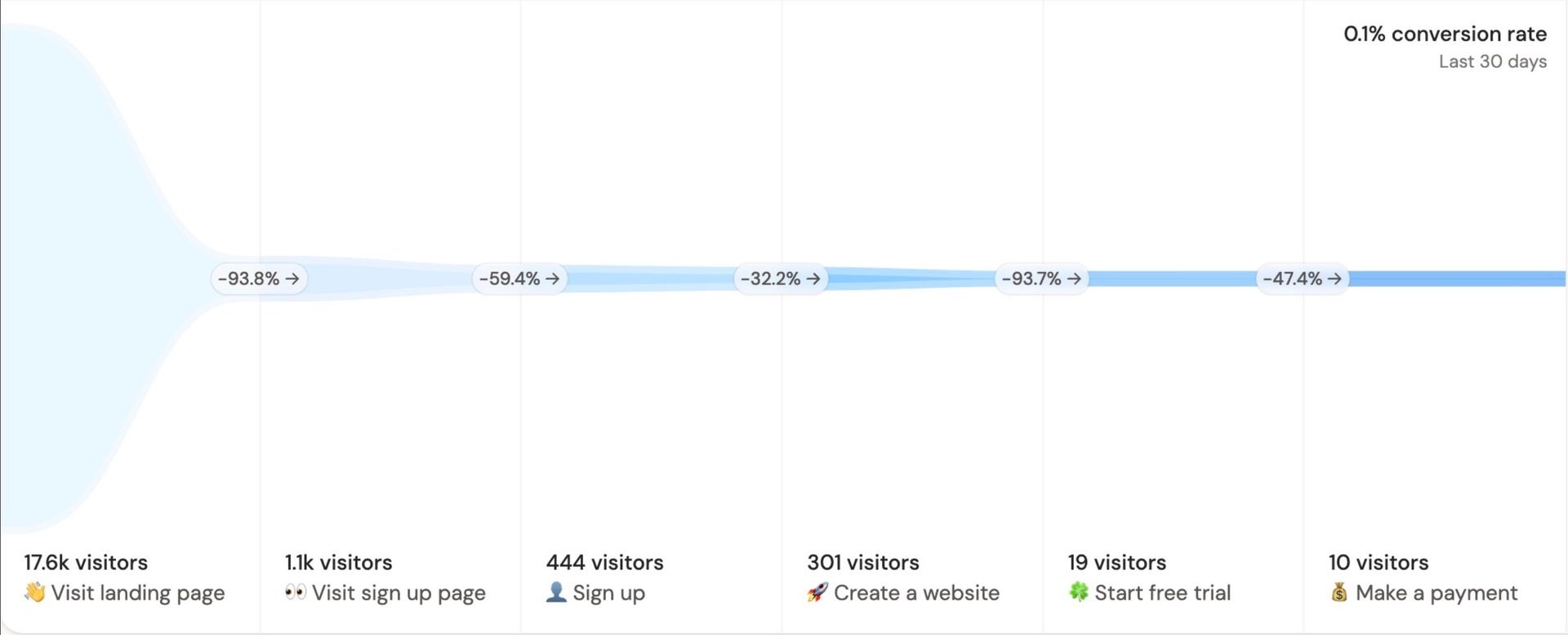- Just Ship It
- Posts
- How I grew my SaaS to $5K MRR
How I grew my SaaS to $5K MRR
6 lessons I wish I knew earlier.
A year ago, I started DataFast.
The first months were rough. Churn was 33%. It took me 124 days to reach the first $1K MRR.
Today it’s a different story:
$5,338 MRR growing 22% month-over-month
405 paying customers
Churn at 8.99%

Here are 6 lessons I wish I knew earlier:
1. Pick one problem, and ignore the rest
Analytics is a crowded space. Big, VC-funded startups dominate it. And most people just use free tools like Google Analytics.
Instead of competing with everyone, I narrowed down.
I built DataFast only for entrepreneurs (because that’s who I care about).
And the #1 problem entrepreneurs face with analytics? Revenue attribution. Most tools are either painful to set up or only show vanity metrics like pageviews — which mean nothing without context.

So I positioned DataFast as the revenue-first analytics tool for entrepreneurs.
That simple focus made it easier to stand out, because I was speaking the language of entrepreneurs and solving their problems.
By the way, positioning feels natural when you’re scratching your own itch — which is exactly why I started DataFast.
2. Using info products is a cheat code
Selling SaaS is hard. Most people aren’t ready to commit to a monthly charge right away.
My first batch of DataFast customers came from my course CodeFast and my boilerplate ShipFast — where I upsold my analytics tool.

When people deploy a site built with ShipFast, I nudge them to try DataFast
One-time products are low-commitment, so they convert better. And once someone has already paid you and liked what they got, it’s much easier to upsell them to SaaS. Trust is already built.
I designed features to be shareable.
Because people only share what feels valuable and beautiful to them.
It’s a heuristic that forces me to aim for the best. If it isn’t good enough to screenshot, it isn’t good enough.
That’s how I built things like the real-time globe with avatars, customer journeys, and funnels.

By focusing on features worth sharing, it’s win-win: My customers have content to share, and I get free distribution.
4. Let customers decide the roadmap
In May 2025, I added a customer chat box on every page
Instantly, users started sharing what they wanted. Patterns emerged. I turned those into a feedback board where people could vote.

The roadmap became obvious. Instead of building features based on my assumptions, I built what users actually cared about.
5. Cut onboarding down to the AHA moment
Because I let customers decide the roadmap, I ended up building a feature I never thought I needed: Funnels
That’s how I discovered the biggest bottleneck in my SaaS: Onboarding. Only 6% of users who signed up ever started a free trial.

So I went back and stripped the onboarding flow down to the essentials. I removed everything that wasn’t directly helping users reach the “aha” moment (the #1 reason they signed up): Revenue attribution.
This shift had a huge influence on growth. I documented the full breakdown here.
For a year, I shared daily progress on Twitter.
Most tweets went completely ignored. But every now and then, one post would click and bring in dozens of signups.
I've been traveling a lot this year, so I built myself this little feature.
— Marc Lou (@marc_louvion)
12:41 PM • Aug 9, 2025
The real lesson wasn’t about writing the perfect tweet — it was that consistency beats quality. By showing up every day, I built trust. Even skeptics eventually came back when they saw me making progress.
It doesn’t matter which platform you use. The same approach works on YouTube, where one video turned into my biggest lead magnet. Just be genuine, concise, and consistent.
Final thought
If I had to sum it up:
Focus on who you’re building for
Make it easy for them to trust you
Ship things worth sharing
Keep talking to your users
Show up every day
DataFast isn’t big yet. But at $5K MRR, it finally feels like the hard work compounds.
See you at $10K,
— Marc Lou
3 startups I built to help you:
Reply